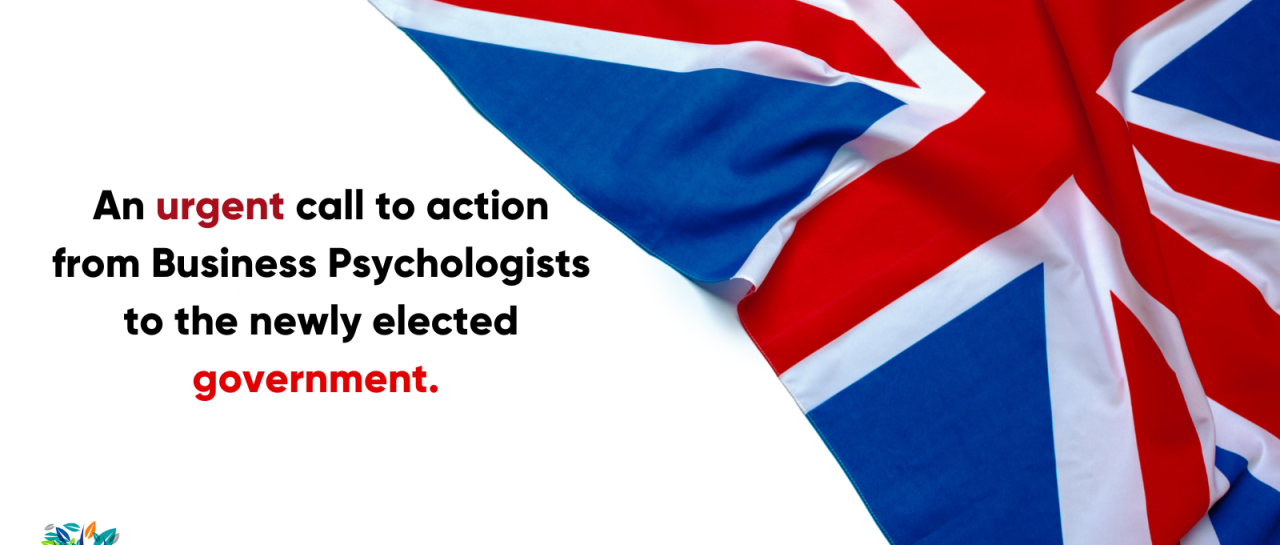Authored by Certified Business Psychologist Laura Howard. Certified Business Psychologist, Laura Howard, reflects on the webinar she recently delivered to ABP members. Below she outlines the main findings of her published research uncovering systematic barriers women face when being authentic as leaders. Importantly, she gives…

Coronavirus (COVID-19) is having a significant impact on our daily lives, at work and at home. Measures have been announced by the government to seek to slow down the spread of this virus and it is essential that we all take action to protect ourselves and those around us during these challenging times. The health and wellbeing of our colleagues is of paramount importance. We also want our businesses to survive. From a business psychological perspective, what are the main things we would do well to consider in this type of crisis? Lisa Kramer (our content editor and podcast interviewer) shares some of her thoughts on the topic but we’d be delighted to hear your thoughts as well. If you want to take part in the discussion, please leave a comment on our LinkedIn post or email admin@theabp.org.uk.
Clearly these are unprecedented times. Our lives are being disrupted, changed, altered by the day. The world is entering a self-imposed lock down in the war against the coronavirus. From a business perspective, finally with Brexit behind us, we were hoping for some stability, but times have never been so uncertain.
Whilst many issues are out of our control, from a business psychological perspective one issue that we can control and need to be aware of is how far reaching our actions will have an impact on those around us.
Leading from the top
There is no getting away from the fact that leaders themselves are unsure about the business future and whilst this is totally understandable, it could be argued that leaders have responsibilities that go beyond their own uncertainties. Irrespective of whether a business can operate remotely or not, for those who are in a leadership capacity, role modelling will be especially vital in these uncertain times as colleagues look towards them to provide the strength and resolve that will set the tone in this crisis.
Now is the time to display reliance and strength. When these behaviours are manifested from the top, they filter down throughout the echelons of the organisations, bringing with them a sense of much needed serenity and calmness.
Agility
Where possible, leaders that can look beyond the current remit and timeframe and quickly adapt and react to current situations have the greatest chance of survival. This of course depends on the type of business, as some organisations (industries) are much more able to adapt themselves to this type of crisis than others.
We have seen that the supermarkets were able quickly adapt their opening hours, setting certain times for the elderly or at-risk groups in an attempt to reduce the chances of contamination. They were able to extend their on-line delivery service, keeping more people in their homes and less people in the shops (potentially exposed to each other). Clearly this doesn’t apply to all businesses. Small e-commerce business should see their profitability rise as more people buy online, but the lack of certainty regarding jobs (and then the potential lack of salary) affects peoples’ willingness to purchase anything. It is simple supply and demand economics – but its impact will be felt by many.
So, employees expect their leaders to be agile, they want their managers to be creative in identifying opportunities and finding solutions in times of crisis and during pinch point situations and will follow their lead. Opening opportunities for employees to offer their suggestions to managers may bring some unexpected ideas. Not only do ‘front-line’ employees have interesting insights that could be capitalised upon, but by asking them for their thoughts, managers will also make employees feel involved and appreciated which in turn leads to increased company loyalty, higher levels of motivation and performance, even in difficult times.
Honesty, clarity and transparent communication
Employees want, nay need, honest, clear, regular and transparent communication. These behaviours become the most valuable currency you can offer your employees, especially now. Your staff will want to see:
Honesty regarding how the crisis is affecting your business will gain your employees’ respect. In turn their respect will lead to their loyalty and this brings organisational gains.
Clarity on what you as a business is trying to do (if or how you are intending to stay open, how far you are intending to pay salaries, or sickness pay). This can allay fears and bring a sense of calmness, allowing people to forward plan as much as is possible under the circumstances.
Clear and consistent communication. This is key and without it ambiguity becomes rife, and uncertainly can turn into scaremongering. If this goes into freefall it could affect motivation and productivity.
See each employee as an individual
We must remind ourselves to see our colleagues as individuals so the way they respond to this pandemic will be in part based on their personality type, in part to their genetic predisposition to stress, anxiety and depression and in part to their own individual circumstances.
So, we must also be mindful of the context in which each of our employees are operating. Many of them will have other responsibilities outside of the workplace and depending on the nature and extent of their out-of-work responsibilities (and the associated stress that may accompany them), staff work productivity may be affected and performance reviews might need to take this into consideration.
Finally, be mindful that colleagues may need to be supported in different ways, beyond those of a traditional line management role. So, businesses that can identify groups of people in their organisation with higher levels of empathy or emotional intelligence and who are willing to step up and offer themselves to be mental-health ‘peer mentors’ may reap the rewards of offering this type of solution in this crisis. Not only will this keep employees mentally well and functioning in their role (vital from a well-being stance) but it also increases the sense of community in the workplace and builds up team spirit and psychologically these have shown to be beneficial for work rates and performance.
In essence, organisations that get a handle on the ‘people element’ of their business (now and throughout the crisis) will be the ones that will retain high levels of loyalty and respect amongst their staff and will be the most sought-after employers once this crisis is averted.
—end—
These are unprecedented times, but we are all in this together. Whoever we are connected to, wherever they are in the world, there are stories to be told and feelings to be shared. What is your story?



